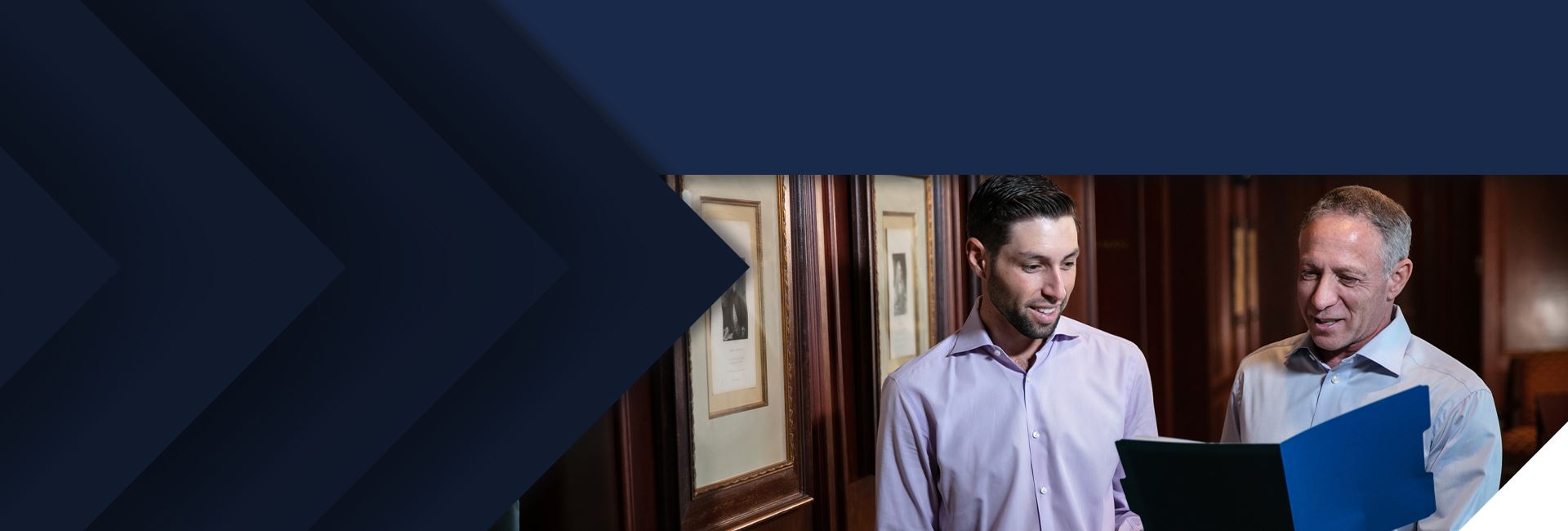
Florida Nursing Home Abuse Attorney
Nursing Home Abuse & Neglect in Florida
When we make the difficult choice to place an elderly loved one in a nursing home or similar long-term care facility, we trust that the staff there will provide an acceptable level of care. Unfortunately, this is not always the reality.
According to some reports, including data from the National Center on Elder Abuse, as many as 50% of U.S. nursing homes are understaffed and, even more shocking, approximately 30% fail to provide residents with adequate care. If you suspect that your elderly loved one may be the victim of nursing home abuse or negligence, contact Zimmerman & Frachtman, P.A. right away. Our Florida nursing home abuse attorneys are prepared to take immediate action to help you put a stop to the abuse and fight for the justice you and your loved one deserve.
Learn how we can advocate for you and your family; call (954) 504-6577 or contact us online today to request a free, no-obligation consultation.


What Is Nursing Home Abuse?
As the aging population grows, it is important to consider that the elderly are particularly vulnerable to abuse; many people choose not to examine this possibility because it is frightening and shocking, but it is surprisingly common. Particularly in a nursing home situation, the elderly are often at the mercy of those who are not personally connected to them, and can be at risk due to their lack of ability to physically stand up for themselves.
Nursing home abuse takes many forms, but the damage can be equally extreme in any of the cases—whether it’s emotional abuse, physical abuse, neglect, or financial abuse. Knowing the warning signs of abuse can enable you or a loved one not only to get out of the situation, but also to receive the compensation that may be your due.
Nursing home abuse and neglect take many forms, including:
- Physical Abuse: Physical abuse includes any harmful physical contact between a caregiver and an elderly individual, such as slapping, hitting, pinching, or physical restraint.
- Sexual Abuse: Sexual abuse involves any unwanted or nonconsensual sexual contact, including sexual assault, groping, and rape.
- Neglect: Neglect generally refers to a failure to care for an elderly resident’s basic needs, such as nutritional, medical, or hygiene needs.
- Emotional/Mental Abuse: Emotional or mental abuse includes conduct meant to harm an elderly individual’s mental wellbeing, such as name calling, ridiculing, or manipulating.
- Financial Abuse: Financial abuse typically involves taking advantage of elderly individuals to fraudulently gain access to their finances or related documents.
Physical abuse is one of the most major problems in nursing homes in the United States today. The definition of this form of abuse is any non-accidental use of physical force against an elderly person. In extreme cases, the abuse can cause death, but more commonly causes physical pain or injury; physical abuse can also include the inappropriate use of drugs, as well as inappropriate use of physical restraints.
Some warning signs include recent unexplained (or inadequately explained) injuries, marks on the arms or legs of the elderly person that are consistent with restraints, infections, rapid weight loss or weight gain. Some of the signs are less easily detected; changes in behavior or sudden withdrawn behaviors may be ascribed to dementia or other causes—which is why it is important to check frequently on your loved ones who are in a nursing home to make sure that you notice these events.
Emotional abuse is a more subtle form of harm, and one that does not have as many obvious signs. Emotional or psychological abuse is defined as speaking or treating elderly persons in ways that cause emotional pain and distress. Examples of this type of abuse include:
- Intimidation through yelling or threats
- Isolating the elderly person
- Humiliation and ridicule
- Ignoring the elderly person
While ignoring and isolating the elderly person is a more passive type of abuse, it is still against the law. Warning signs of this type of abuse are similar to physical abuse—withdrawn behaviors, for example, are common. Also common are instances of wandering, unwillingness to speak in front of nursing home staff, and becoming easily upset or agitated.
Financial abuse is often more common in a home-care situation than in that of a nursing home, however it does still happen in elder care institutions. Financial abuse includes outright theft, forcing of an elderly person’s signature, and healthcare fraud—including billing for care that is not provided, as well as double-billing procedures.
Over-prescribing and over-medicating are also common forms of financial abuse in nursing homes. It is not difficult to check on this possibility however; politely ask your loved one to look over their financial information, and insist on looking at the elder’s medications to make sure that the amount in the bottle is consistent with the date of prescription. The best safeguard is to call and visit as often as you can, so that your elderly loved one knows that you can be trusted.
At Zimmerman & Frachtman, P.A., we do not tolerate any type of elder abuse or nursing home neglect. Our attorneys are prepared to stand up for you and/or your loved one; reach out to our team today if you believe that you or someone you care about is the victim of any form of nursing home abuse or negligence.
Identifying Different Forms of Elder Abuse in Care Facilities
Nursing home abuse and neglect take many forms, including:
- Physical Abuse: Physical abuse includes any harmful physical contact between a caregiver and an elderly individual, such as slapping, hitting, pinching, or physical restraint.
- Sexual Abuse: Sexual abuse involves any unwanted or nonconsensual sexual contact, including sexual assault, groping, and rape.
- Neglect: Neglect generally refers to a failure to care for an elderly resident’s basic needs, such as nutritional, medical, or hygiene needs.
- Emotional/Mental Abuse: Emotional or mental abuse includes conduct meant to harm an elderly individual’s mental wellbeing, such as name calling, ridiculing, or manipulating.
- Financial Abuse: Financial abuse typically involves taking advantage of elderly individuals to fraudulently gain access to their finances or related documents.
At Zimmerman & Frachtman, P.A., we do not tolerate any type of elder abuse or nursing home neglect. Our attorneys are prepared to stand up for you and/or your loved one; reach out to our team today if you believe that you or someone you care about is the victim of any form of nursing home abuse or negligence.
Recognizing the Warning Signs of Elder Mistreatment
Because elderly individuals are not always able to speak up for themselves, it is important that you are aware of the signs of nursing home abuse and neglect. Pay close attention to your loved one’s apparent health and wellbeing and never hesitate to report anything that seems suspicious, either to the facility’s administration or the police.
Some of the most common signs of nursing home abuse include:
- Unexplained injuries, such as bruises or cuts
- Falls and other preventable accidents
- Broken bones, such as fractured hips
- Untreated infections and illnesses, such as pneumonia or COVID-19
- Rapid weight gain or loss
- Symptoms associated with malnutrition or dehydration
- Bedsores (also known as pressure ulcers)
- Unusual changes in mood or behavior
- New or increased agitation, irritability, or anger
- Sudden, unexplained bouts of crying or lashing out
- Apparent fear in the presence of certain staff members
- Soiled or dirty clothing, sheets, facilities, etc.
- Staff members refusing to leave you alone with a loved one
- Medication errors, such as overdose
- Signs of physical or chemical restraint
- Overcrowded facilities or a poor staff-to-resident ratio
- Sexual injuries, i.e., injuries to or near sexual organs or body parts
- New sexually transmitted infections/diseases (STIs/STDs)
- Elopement or wandering
- Unexplained changes to your loved one’s financial situation
- Unusual withdrawals from bank accounts
- Changes to a will, trust, healthcare directive, or similar document
If you believe anything is amiss with your loved one’s treatment, do not hesitate to contact the local police or the Florida Department of Adult Protective Services. If you believe your loved one (or anyone else) is in immediate danger, call 911.
Establishing Accountability for Nursing Home Abuse in Florida
In most cases, the person or party who perpetuated the abuse can be held liable for the victim’s resulting injuries and damages. Often, the nursing home (or similar facility) can also be liable. These facilities have a legal responsibility to conduct background checks, provide proper training, and ensure that they have sufficient staff to meet the needs of their residents. When they fail to provide an acceptable level of care, and elderly residents are catastrophically injured or die as a result, they can—and should—be held accountable.
Depending on the specific details of your case, any of the following parties could be liable:
- A medical provider
- A staff member
- A private caregiver
- The nursing home or assisted living facility
- A maintenance crew or crew member
- Another resident
Note that this is not an exhaustive list. Our Florida nursing home abuse attorneys can review the details of your case to determine exactly what happened and, most importantly, who is responsible for your loved one’s injuries or death. We understand that these are incredibly emotional and sensitive issues, which is why our team provides empathetic and compassionate support every step of the way.
What to Ask if You Suspect Elder Abuse
Elder abuse has really become an issue in nursing homes today. These facilities seem to continue to have people that are not well trained, not well equipped, and have employees that just don’t care and can be very neglectful and abusive to the seniors.
It is imperative to be very observant if you have a family member that resides in a nursing home. These family members can be afraid of saying anything in fear that the abusers will make things worse for them. Just like any abusive situation, the abuser uses fear to stay in control.
If you have a family member in a nursing home, make frequent visits and notice everything you can about the facility and your loved one. Here are a few things to watch for when you’re there:
- What does the overall facility look like? Is everything outside well-groomed and clean
- What type of security to they have?
- How does everything look inside? Are all areas clean? How is the atmosphere? Is it pleasant and uplifting?
- Look at the other residents. Do they look happy?
- When visiting your family member check to see if you notice any changes in their behavior.
- Do they have any physical types of trauma, such as bruising, cuts, etc.
- How does their room look? Is it well taken care of or messy?
- Are they getting the medical care they are supposed to be getting?
- How does the family member look overall? Do they look healthy? Are they eating?How do they act around the staff? Do they engage with the staff? Do they feel at ease or do they feel uncomfortable?
Check with the staff and see if they are willing to ask questions. Sometimes they won’t have any problem answering any questions, but if they are vague and are trying to avoid them, you might want to take action.
Why Choose Zimmerman & Frachtman, P.A. for Your Nursing Home Abuse Case?
Our attorneys have extensive experience handling all types of nursing home abuse and neglect cases. We have a proven record of success in defending the rights of injured victims, as well as the families of those who tragically lost loved ones due to the negligent or wrongful conduct of others. We are committed to holding these parties accountable and seeking the justice you and your family deserve.
When you choose Zimmerman & Frachtman, P.A., you will receive the highest level of accessibility from our team, as well as direct attention from your attorney. We believe that communication is the most important component of any attorney-client relationship; therefore, we strive to always be available to our clients and even provide them with our personal contact information. We also believe in developing customized, innovative legal strategies and utilizing advanced technology to build powerful, persuasive cases. We do not accept lowball settlement offers and, whenever necessary, are prepared to aggressively represent you and your recovery at trial.
We invite you to reach out to us today to set up a free, no-obligation consultation. Because we offer contingency fees, you do not owe anything unless we recover compensation for you. There is no risk in speaking to one of our Florida nursing home abuse attorneys today about your legal rights and options.
Call (954) 504-6577 or contact us online using our free and secure submission form.

Serving the entire state of Florida. We will take charge of your case and get you the compensation you justly deserve.
Our Distinguished Team
When Your Benefits Matter, It Matters Who You Hire
-
Aggressive, Experienced, and Compassionate Counsel
-
Client Centered Approach
-
Spanish-Speaking Services
-
Access to Call or Text Your Attorney Anytime
-
Work Directly With Your Attorney
Whether you have questions or you’re ready to get started, our legal team is ready to help. Complete our form below or call us at (954) 504-6577.





